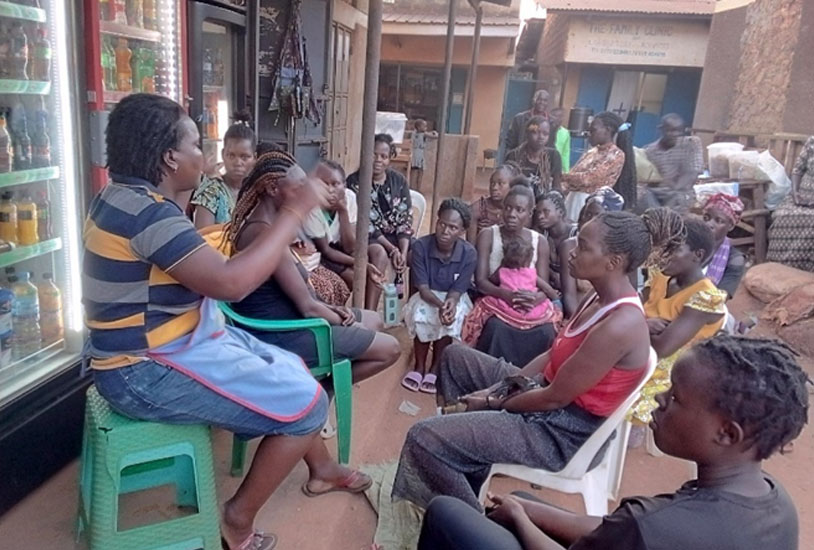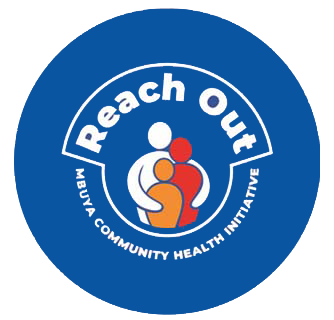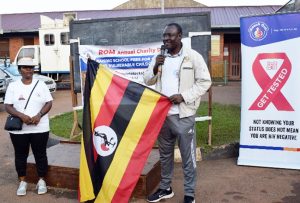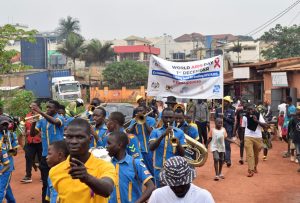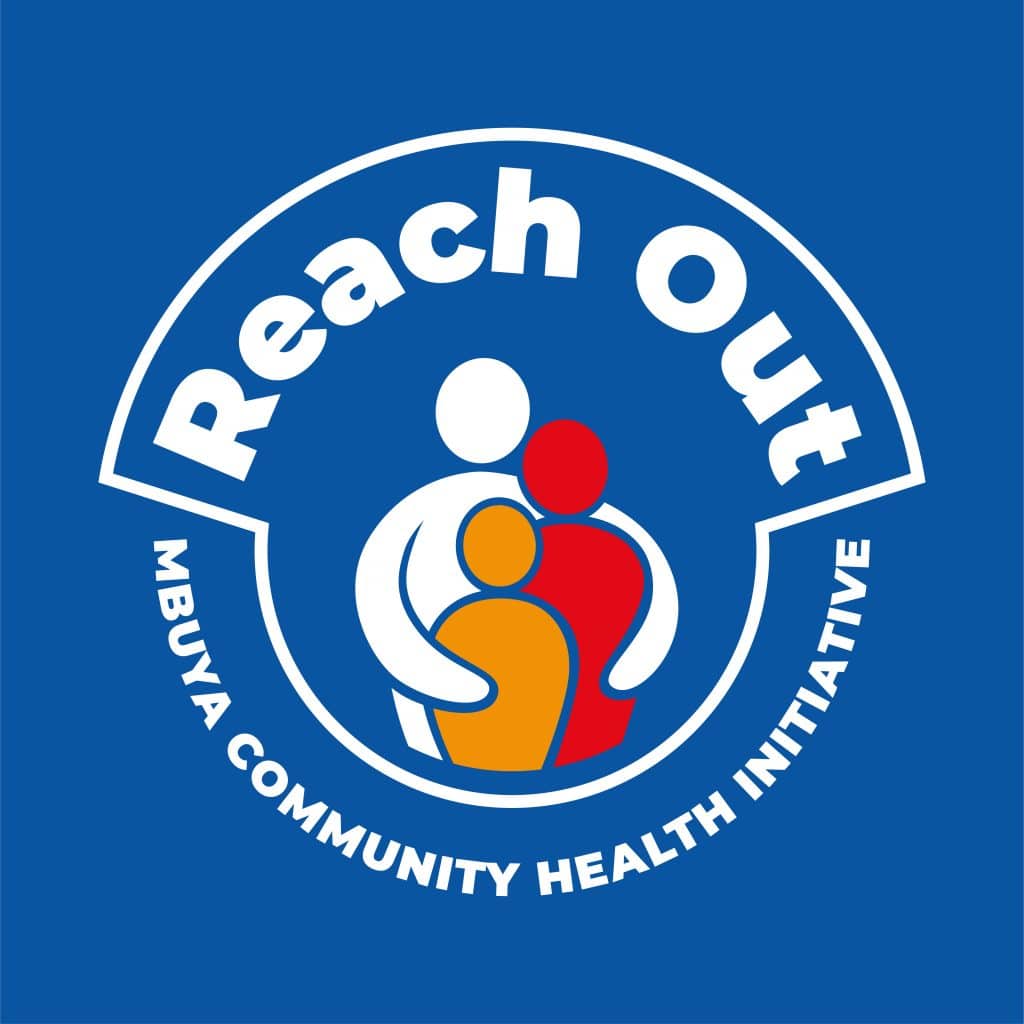Community-based HIV counselling and testing
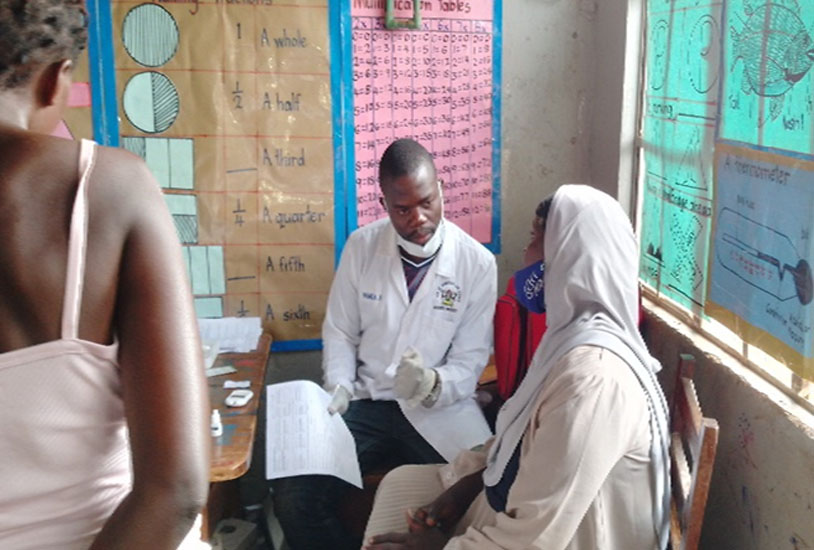
To close the gaps in prevention of the further spread of HIV among adolescents, men and women, ROM has now supplemented health centres-based services with community-based care to facilitate easy access to HIV services for all in Nakawa division, particularly the most underserved populations who are unable to access facility services. Services offered include HIV Testing Services, screening for non-communicable diseases and Sexually Transmitted Infections as well as screening and testing for syphilis.
In this period, 2341 received HTS services during medical camps and outreaches conducted in markets, drinking joints and boda boda stages. Six (6) of these tested HIV positive and were linked to care. The rest received preventive messages and services with referrals to other service providers for services not offered at ROM.
HIV Testing and Counselling Services for fishing communities
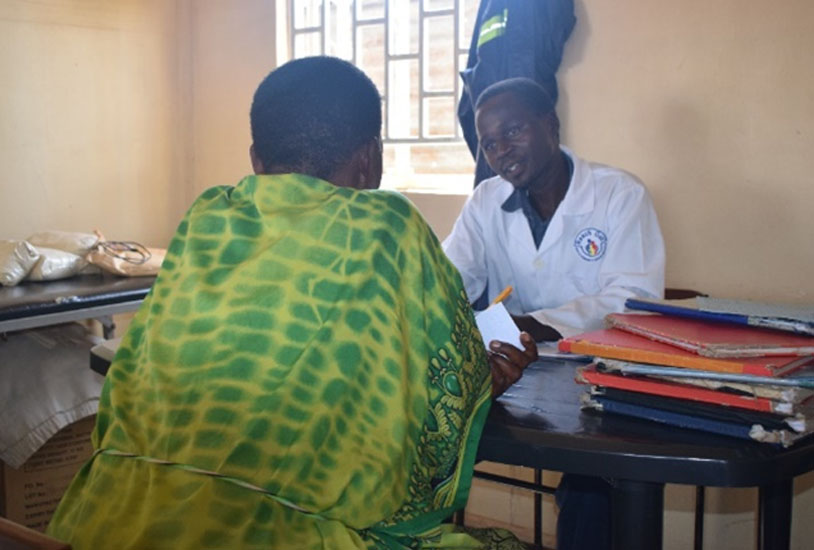
A ROM counsellor and a social worker attend to a client at ROM Port bell Wellness Center.
Fisherfolk and Fish mongers are among the key populations that ROM targets in her efforts to reduce the further spread of HIV. At ROM’s Port bell Wellness Center, staff ensure that adequate services are provided for this group. They are able to access HIV testing and counselling services. Those who test HIV positive are linked to ART. They are also screened for non-communicable diseases, tuberculosis and general health services.
Outreach services for Prevention of Mother to Child Transmission of HIV (PMTCT)
In this period, ROM has carried out a number of outreaches for pregnant mothers in areas of Gayaza, Kiwatule, Kinawataka, Naguru and Port bell- Luzira to ensure no child contracts HIV from its mother. The ROM Outreach Services team schedules appointments with pregnant mothers depending on their expected date of delivery and after delivery.
When a child is born to an HIV positive mother, they undergo periodic blood tests for early infant diagnosis, done from 4- 6 weeks to 18 months. This helps to determine their sero-status i.e whether the child is HIV positive or negative. The first test (PCR) is at 4-6 weeks, second PCR at 9 months, 3rd done 6 weeks after cessation of breastfeeding and at 18 months, the final test (HIV Anti-body test/rapid test) is done. If the child is found positive, they are enrolled and followed up in care, but if they are negative, the child is discharged from the PMTCT program
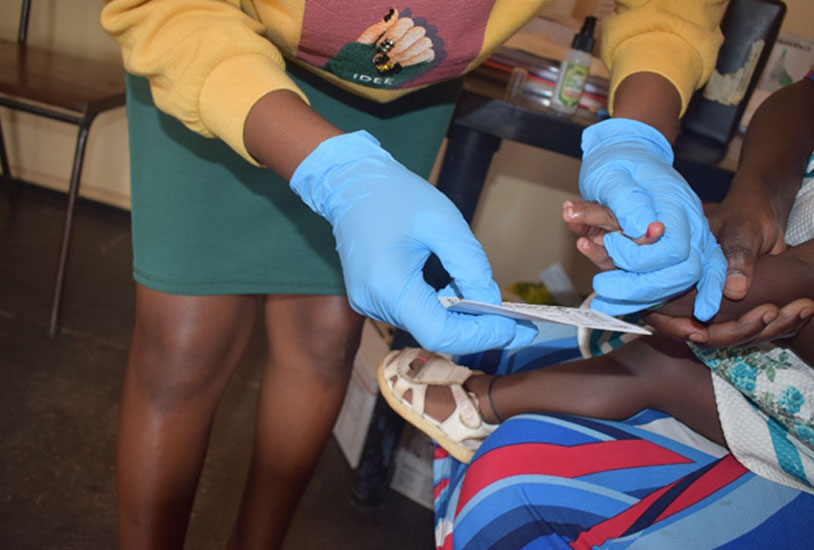
A laboratory technician taking a child’s Dry Blood Spot Smear (DBS) from an HIV exposed infant at ROM’s Port bell Wellness Center, Luzira.
Work Readiness and Soft Skills training for young mothers
In August, ROM rolled out the Work Readiness and Soft Skills training for 101 young mothers in Nakawa Division aimed at equipping them with skills that contribute to their long-term career growth, take on more responsibilities, explore new opportunities and conquer challenges to attain financial autonomy and forge rewarding career paths.
Mothers were able to increase self-assurance and resilience, learned time management, communication, and self-confidence as important aspects for successful career and overall well-being. From shared experience, they were able to learn from one another’s challenges and success
